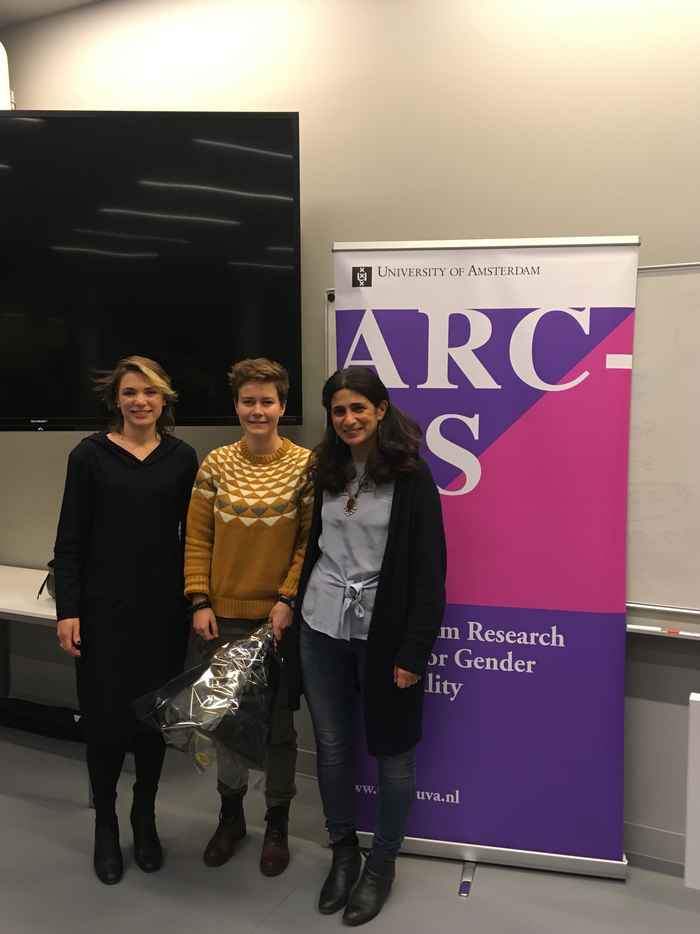“Desiring Palestine. Gender, Refugees and The Politics of Home” Lecture by Ruba Salih (SOAS, University of London)
By Simone Schneider
Palestine as a transformed country
Due to constitutive colonial structures and enduring forms of violence in the past centuries, people who resided in Palestine were subjected to forced mobility and thus had to constantly rearrange their lives. Not only humans were forced to migrate and to find new shelters, but also Palestine's landscape, which had remained unchanged for centuries, was profoundly transformed by forced mobility. Salih explored the role of emotions and feelings in this transformation process and examined how it is possible to reconstruct and remember experiences of forced migration and the history of a place that no longer exists or is no longer recognizable. To investigate this question, Salih conducted ethnographic research in Palestine and conducted interviews with various women to learn more about their ways of rethinking and remembering Palestine.

Women and agency
Palestinian women are attributed agency in particular through two dominant frameworks. On the one hand, women can show active resistance in public spaces and can thus be classified as part of a national narrative. On the other hand, they can be framed as oppressed bodies and thus become part of a liberal feminist narrative. Women therefore become subjects by participating in forms of resistance in private as well as political spheres. Consequently, women who do not fit into those narratives are frequently not perceived as political subjects and become invisible. Due to those dominant frameworks, the role of the everyday and ordinary life gets lost, and many memories and emotions which do not fit into these narratives remain unnoticed. Hereby, Salih examined precisely those women who are attributed no place in dominant memory work, since they are only perceived as part of the private but not public and political sphere. As a result, Salih questioned how we can rethink Palestine through the desires, feelings and practices of those women who are not captured in dominant frameworks.
Women in Palestine
With regard to rethinking Palestine, Salih emphasized the centrality of the body of these seemingly ordinary women, who so often carry visible signs of migration and violence marked onto their bodies. Women wear the scars of violence, which were created when they moved with their families from one home to the next and had to build up a shelter over and over again. These women were frequently forced to make hard decisions between their own safety and that of their children and husbands, being required to continuously follow the migration routes of their husbands. In uncertain times, it was the mothers of families who were responsible for the family connections and social relations and who provided their children with safety and security. But precisely those decisions and sacrifices of women are mostly absent from the memories and narratives of Palestine's history.
Vegetation and nature in Palestine
The vegetation of Palestine plays a special role in the memories and imagination of Palestine among these women. While efforts have been made to transform the Palestinian landscape into a European one, the previous vegetation begins to grow again and again. This vegetation allows women to reconstruct memories of their experiences when there are no longer many visible signs of the past. Furthermore, Salih explained that nature takes on an essential role in how these women imagine or practice their return to Palestine – nature allows one to see, touch and feel what no longer exists. Hereby, memories and narratives of Palestine go beyond nationalist ideas of belonging and instead capture human and nun-human forms of life. Based on these findings, Salih concluded that the private and public sphere should be brought together and should be understood as connected, acknowledging the multiple fractions a subject, such as a seemingly ordinary woman, can possess.